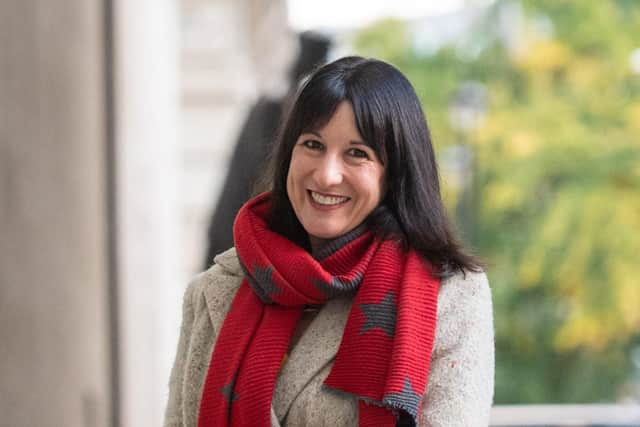Rachel Reeves: 'Britain in 2021 would not look so unfamiliar to Harold Wilson'
and live on Freeview channel 276
Shadow chancellor of the Duchy of Lancaster Rachel Reeves will deliver the annual Harold Wilson lecture at the University of Bradford today, and will say that while Huddersfield-born Sir Harold - who was Prime Minister between 1964 to 1970 and 1974 to 1976, and Leader of the Opposition in between - heralded the opportunity of science and technology, there was a way to go to ensure new innovations were used for good.
Ms Reeves, who is also MP for Leeds West, will reflect on her own political journey from joining the Labour Party in 1996, and on how the country has changed between Sir Harold's era, to the start of New Labour, to now.
Advertisement
Hide AdAdvertisement
Hide AdReferencing a speech Sir Harold delivered in 1963 before he became Prime Minister, Ms Reeves is expected to say: “Wilson spoke at a time of real optimism about the benefits that science and technology could bring to societies able to harness their potential.


“His Yorkshire roots resonated with the mood of the moment.”
“Wilson took aim at a government headed by yet another old Etonian, and at an old boys’ network which constrained Britain’s potential and threatened to lead us in the wrong direction.
“An elite which was drawn to the shiniest and the most extravagant new projects, more concerned with their prestige than the productivity of the nation, but which overlooked the untapped resources that could be found throughout British society.
Advertisement
Hide AdAdvertisement
Hide Ad“Perhaps Britain in 2021 would not look so unfamiliar to Harold Wilson.”
Ms Reeves is expected to outline how at that time, people wanted change but also “the extension of opportunity in education and work, to consume, and to enjoy new forms of expression”.
“But they also wanted protection – including from the fear of job automation.Wilson called for a reassessment of where Britain’s resources should be focused, for those areas which prioritised national economic development and the social good,” she will add.
She will say that by 1995 there was “a wave of real optimism about the future: change was coming at last and it was going to breathe new life into the country”.
Advertisement
Hide AdAdvertisement
Hide AdBut she will say change, and the threats posed by technology such as automation taking away jobs or closing bricks and mortar stores, also made people scared.
“Change can be disorientating,” she will say.
“We feel less secure; less in control of our lives.
“It can threaten the things we most value: security for our families, the social fabric of our communities, fulfilling, reliable jobs that pay well, and today the pandemic, the threat of man-made climate change, the monopolistic power of new digital platforms.
“These all threaten to rob us of a sense of security and of control over our own lives and communities.”
But she will say the potential for new technology, if harnessed in the right way, was positive.
“That potential is clear.
Advertisement
Hide AdAdvertisement
Hide Ad“We have seen during the pandemic how technologies can transform how we interact with public services – whether it is zoom parents’ evenings, to online GP appointments – pointing the way towards a more responsive, efficient state.
“Oak National Academy and BBC Bitesize offer a model for extending educational advantages to children unable to afford private tuition.
“Data offers new and vital ways to track the spread of the virus offering ways to combat the spread of a global pandemic unimagined by previous generations.”
But she will add: “As we emerge from this crisis, we need to ask ourselves how can we preserve, enhance and draw upon what is best about Britain in a world that sometimes feels beyond our control.”
The Harold Wilson lecture will take place online this evening from 6pm.